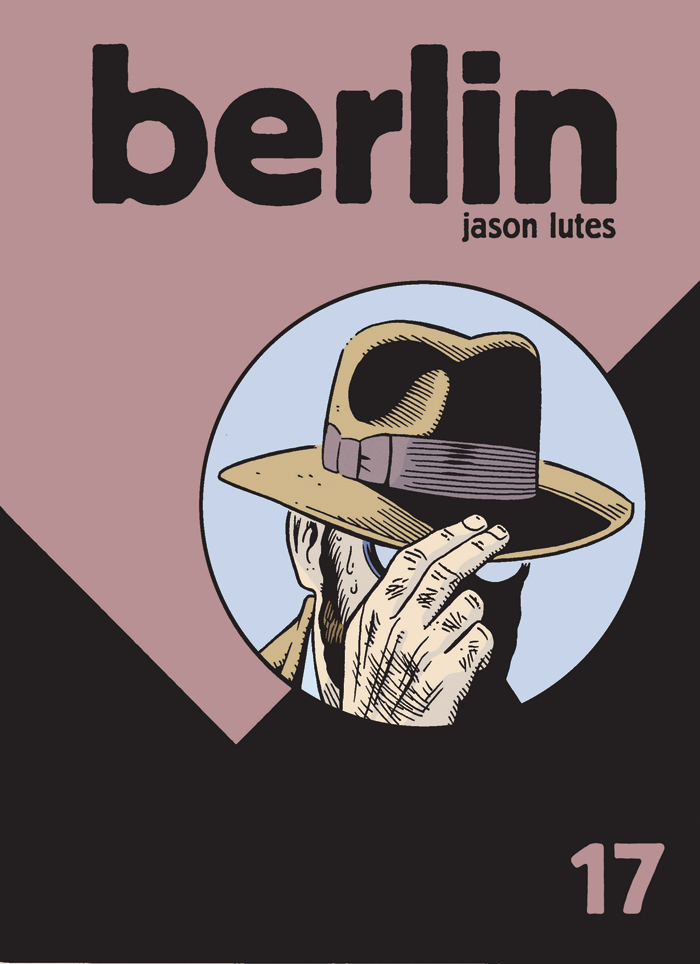Berlin 17
Reviewed by Ian Moore 02-Feb-11
Berlin is a comic set in… Berlin. It is set in the early years of the 20th century, with this particular issue occurring in that awkward period between the onset of the Great Depression and the Nazis’ assumption of power. So we are in the last days of Weimar Germany.
Berlin is a comic set in… Berlin. It is set in the early years of the 20th century, with this particular issue occurring in that awkward period between the onset of the Great Depression and the Nazis’ assumption of power. So we are in the last days of Weimar Germany. The issue is very evocative of its time and place, and if you have ever been to Berlin you can have fun spotting locations. I was particularly struck by a double-page spread of Hitler arriving into Alexanderplatz, which had an almost visionary quality to it for all Lutes’ use of a fairly simple, black-and-white clear-line approach to the art.
This issue follows a number of characters, some of them real historical figures others either fictional characters or real people I had never heard of. Thus we have Goebbels and Hitler travelling into Berlin by train, some journalist guy almost but not quite joining the Communists, two women getting down to some girl-on-girl action, and so on. I do not read Berlin regularly, so with the non-famous characters the background to their actions and interactions is a bit mysterious, and as with most comics these days there is nothing here saying what has happened previously. This makes the issue feel a bit like arriving half way through a film, watching it for ten minutes, and then leaving.
That makes this title sound a bit problematic, at least for people who have not been reading it since it started. For all that, it is surprisingly involving, particularly the sequence with the journalist and the Communists. The lack of any background to their interaction makes this fascinating, encouraging all kinds of speculation as to what has gone on between these people previously. One day I will probably read the back issues and learn the back-story behind this episode, but for now I am happy for this to remain a mysterious moment in time.
So this is an appealing comic, but I’m not sure if I will stick with it. German history is one of my interests, which means that I know where this is all going – basically all the characters will soon find themselves being carted off to concentration camps by the Nazis, and if any of them survive that then they will find themselves being raped and killed by the Soviets ten years later. That does not sound like a particularly cheery read, so it might be best to stop now.
Tags: Drawn & Quarterly, Jason Lutes
Some background might be useful: this is a graphic novel appearing in serialized form (one of the few remaining, if not the last — is Tomine still producing Optic Nerve?), not an open-ended saga. If I remember correctly, Lutes has said it will end with the outbreak of war; at any rate, it’s slated to wrap up with issue #24. There are two volumes collecting the previous issues, which I haven’t read — despite a lively interest in the period, I’m waiting for the big final collection — and if you’re intrigued, I’d suggest looking into those rather than trying to jump on in the middle of a story.
It may be partly that I’ve a fascination for this historical period, but I would rate this as one of the best comics currently being produced. Its scope, unhurried pace and avoidance of melodrama is exemplary.
Jopnathan, how do you define these graphic novels appearing om serialised form? Much of what Vertigo publishes would broadly fit the model of being non-openended stories that being published sequentially that will eventually finish.